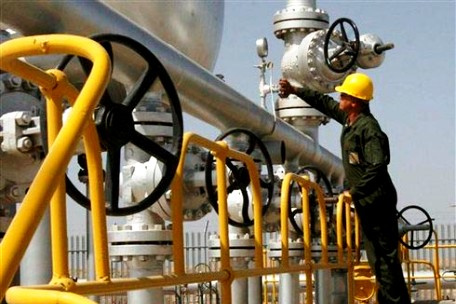Iranian Oil, the UK, and the New Sanctions

By: Abbas Maleki
With one percent of the world’s population, Iran possesses seven percent of the world’s natural resources, including 10 percent of recognized oil reserves amounting to 137 billion barrels and 16 percent of natural gas reserves, or 30 trillion cubic meters. Producing 4.2 million barrels of oil per day and 138 billion cubic meters of gas in 2010, Iran stands in fourth place among oil producers, following Russia, Saudi Arabia and the US. It is also the fourth gas producer after Russia, the US and Canada. Increasing domestic consumption leaves only 2.5 million oil barrels of oil per day and 15 billion cubic meters of natural gas per year to export. Iran’s share of the total global oil and gas production is 5.5 and 0.5 percent respectively.
So far, the modus vivendi of the sudden surge in the price of oil has defied explanation. However, evidence suggests a correlation between the crude oil price and political changes (especially those playing out in oil-producing countries and the Middle East). Through extrapolation and deduction, one can argue that the upheavals in Libya, Egypt, Yemen, Syria, Kuwait and Saudi Arabia have paved the way for an increase in the oil price. The energy thirst of booming economies of the BRIC alliance (Brazil, Russia, India and China) and South Africa counters the negative impact of the economic recession in the Eurozone, the US’ snail-paced GDP growth, and the increasing consumption of oil and gas shale, on the price of oil.
New technologies have allowed the large corporations to maximize exploitation of energy resources. For instance, Venezuela has added to its volume of proven reserves by employing advanced technologies. Thanks to the discovery of extra-heavy oil resources, from 60 billion barrels in the 90s, the country’s reserves have mounted to 211 billion oil barrels, which constitutes 15 percent of the global proven oil reserves. Caracas can easily fill the supply gap of the Middle East.
In 2010, up to almost 500K barrels of Iranian oil have been sold to EU members and EU hopefuls each day. Iranian natural gas export is limited to Turkey and Armenia, and in the meantime Tehran imports gas from Turkmenistan. Around 3.5 percent of Europe’s daily crude oil consumption of 12 million barrels is supplied by Iran. This portion can be supplied by Iraq or even Libya in near future. Increasing exploitation of the North Sea resources could also make up for the likely shortage in case of a halt in Iran's oil export. However, some European countries such as Italy, Spain and Austria are heavily dependent on Iranian oil imports, as well as Greece that is coping with an ailing economy.
The main customers of Iranian oil are Asian countries such as China, Japan and India. Although Iran’s financial transfers have turned into a taxing venture, oil is still sold and its revenue is credited to the treasury thanks to the innovative solutions of the National Iranian Oil Company’s administrators. Discovery, extraction, pipeline construction, marketing, storage, depot, transportation, unloading, money transfers and budgeting are complicated procedures, even in a normal situation. The current stressful climate and all-around pressures have inflicted Iranian oil and gas personnel with many problems.
The author still views Britain’s instantaneous sanctions against the Iranian Central Bank as a turn-up. Iran and the UK have always had their differences, ever since the start of their relations. Even before the Islamic Revolution, the Pahlavi regime held the UK and its domestic agents responsible for political tensions. London-Tehran relations can be called fluctuating, to use a euphemism. After the 1979 revolution, Tehran-London relations hit rock bottom twice, but London preferred to keep the door open in order to sustain access to Iranian officials and to remain informed about the developments of Iranian society, while the Iranian government viewed Britain as a window to interact with the outside world. For that reason, Britain always held the upper hand in the trans-Atlantic ties with the US in terms of relations with Iran. But now it seems that the inexperienced British government has not properly read through the pile of documents in the Foreign Ministry archives on Tehran-London relations (although Iran’s radical behavior should be also taken into account as a cause of tension).
* Abbas Maleki is an associate professor in energy policy-making at Sharif University. He is also a former deputy minister of foreign affairs.

